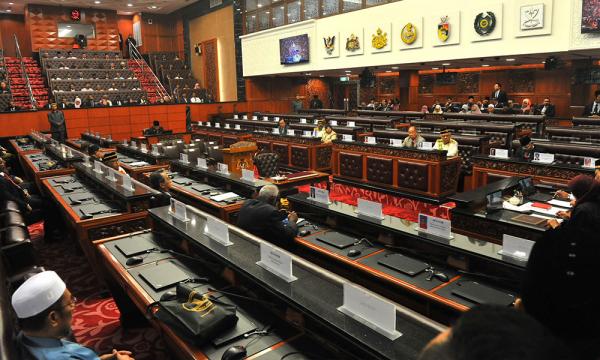LETTER | I refer to the article entitled Reform Dewan Negara so that it isn’t just a rubber stamp and wish to make some observations. There are a number of errors made by the writer.
The three branches of government in a democracy are generally recognised to be the executive, the legislative and the judiciary, not the Dewan Rakyat, Dewan Negara and the Yang Di-Pertuan Agong. The writer uses the term "power" instead of "government" but the thinking is faulty and it is not semantics.
He says that MP Nazri Abdul Aziz, in a roundtable discussion, suggested that the more populated states should have more representatives in the Dewan Negara. Firstly, has he ever looked at the US which also has a senate and house of representatives?
There, both houses are fully- elected but only the representatives follow the one-man-one-vote principle i.e. constituencies all over America have, or ought to have, approximately equal numbers of the electorate. The Senate, however, does not follow this basic principle of representative democracy.
The American senate allows for two senators per state and the constituencies are distributed accordingly. The American founding fathers had the idea that they wished to balance the decision-making power among states i.e. all states to be equal as it should be in a federation of states.
So how do we accomplish this here, with our fully-nominated senators? I propose we take the formation of Malaysia as one variable. At the time, Sabah, Sarawak and Malaya joined this new federation as equal partners. But Umno-ruled Malaya gradually whittled down the position of East Malaysian states until they are but two out of 13 states today.
Using the US principle of equal weightage plus the need to assign a heavier weight to Sabah and Sarawak in recognition of the 18-point and 20-point agreements, we could agree to give a 60/40 weightage of West/East Malaysian states, six senators for each West Malaysian state and 18 senators for each of the two East Malaysian states.
This results in 66 senators from West Malaysia and 36 senators from East Malaysia for a total of 102 senators in the Dewan Negara. For the West Malaysian states, they will carry equal weight with six senators each and for Sabah and Sarawak, they will be glad to hold heavier political representation with 18 senators each.
All senators should be elected with constituencies of numerically approximately the same sizes within each state.
The next question is, what powers will this newly-elected senate have? I think the idea of "distinctive" roles for any senator to be repulsive. Any senator should be able to raise issues that are felt by his constituents and to be chucked out, if he was thought ineffective, at the next elections.
Next, the US senate re-elects one-third of its senators for a six-year term, every two years. This gives rise to the mid-term elections which the US last held in November 2018. This way, there is a continuous renewal of the senate composition while giving them a sufficient duration to effect substantive changes as needed.
The US had excellent minds that shaped its formation following a revolutionary war against Great Britain 270 years ago. They modified and improved things as they went along and now are indisputably the strongest nation in history.
Their system of governance has stood the test of time. In contrast, British Malaya in 1957 had a Federal Constitution and political system modelled by six foreign judges on the British system and incorporating a number of ideas based on racial and religious ascendancy which may have outlived their usefulness and look a little odd today.
We shall do well to look widely elsewhere and not limit ourselves when we think to reinvent ourselves and maybe make ourselves more fit for this new millennium in which we find ourselves and which will inexorably present us with more challenges as well as opportunities.
Certainly, systematically marginalising any group of citizens should not be one of the things in our toolbox. Neither should we systematically elevate any group of citizens. Why else is justice universally depicted as a blindfolded woman who carries a set of scales in one arm and wields a sword in the other?
Our supreme law, the Federal Constitution must, surely, ultimately move in the direction of being blindfolded with respect to the citizens of our nation.
Otherwise, it makes a mockery of equality and complete parity among any category of citizens. And don’t shelter behind that “ultimately” to leave it as a task for future generations! If not now, when? We simply must begin the journey now.
For anything unbalanced must eventually fall under the weight of its own internal contradictions.
The views expressed here are those of the author/contributor and do not necessarily represent the views of Malaysiakini.


